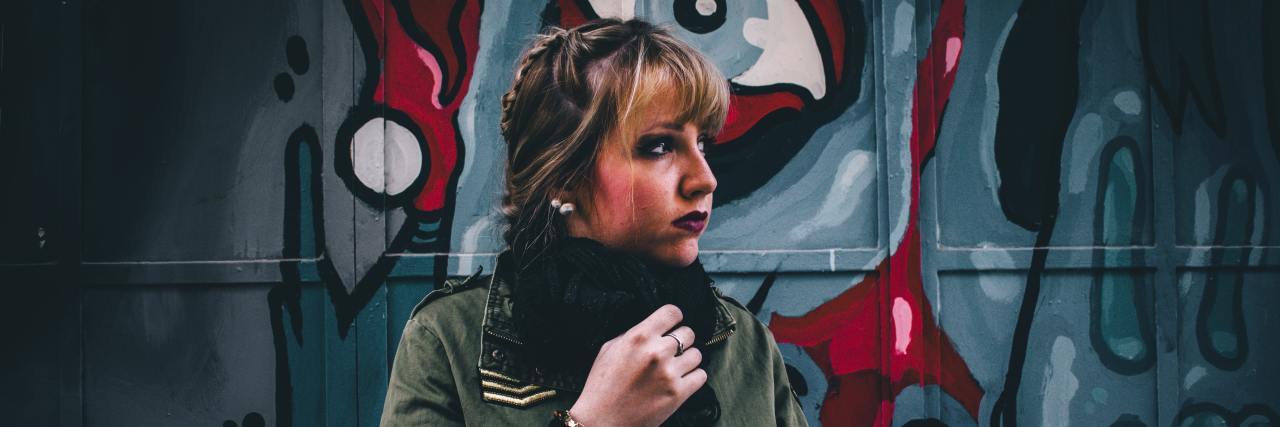How I Had to Adapt My Psychiatric Discharge Plan Due to COVID-19
Editor's Note
If you experience suicidal thoughts, the following post could be potentially triggering. You can contact the Crisis Text Line by texting “START” to 741741.
I sat across the table from a tall, bald man with a warm, but worn smile holding a pen and paper. “What are your plans after discharge to cope with your depression?” was typed on the paper, and my response held the key to my release.
It had been an ordinary day in the middle of the week four days earlier. Typical everyday stress carried by mom duties grated at me, caring for small children and making another Christmas magical had almost overwhelmed me, and having my oldest daughter’s birthday on the second of January only pushed further the bustling days I had before I could relax.
On that day in January, I fell apart. I had held it together for so long. I had lauded my oldest in kindergarten as she was pulled out of class a couple of times a week for advanced math class. I had fought stoically for my three-year-old daughter, born with a severe heart defect, who had completed a sedated CT scan just before Thanksgiving. That rounded out her three open-heart surgeries and countless hospital visits through her short life. I had swallowed my terror upon receiving news my one-year-old son has been diagnosed with a spontaneous genetic mutation that on a spectrum, causes benign and sometimes cancerous tumors to form anywhere on a nerve ending in or on his body.
The day itself is somewhat a blur. The weight of my challenges crashed into me and I couldn’t shake my suicidal ideation. I retreated to bathroom to shower, hoping the warm water would wash away my pain. Without relief, I stepped out of shower, wrapped myself in a robe and prepared to die by suicide before I sank to the ground. My phone in my other hand, I set the song I wanted to die to on repeat.
It wasn’t long after I had begun the process of taking my life, my husband came upon this unimaginable scene and immediately rendered aid. Children went to grandparents, I, to the hospital for evaluation. I couldn’t guarantee my own safety and after my blood pressure stabilized to an acceptable level, I was transferred to a mental health facility.
Now, days later, I spoke confidently as to my toolbox of coping mechanisms. First and most important, medications. Second, weekly therapy. Third, taking time for myself, including going to the gym, traveling, socializing with friends and family and having breaks from the stress of caring for two children with medical challenges. A solid plan in place, my husband accompanied me out of the facility to face 2020 together.
However, this toolbox was not equipped to handle the quarantine life of COVID-19. Suddenly, all of the coping options I expressed were no longer valid. Instead of the gym, I was chasing after children. Traveling became the space between different locations in my home. Socialization relied on video meeting services and childcare fell solely on myself. Sparse trips outside the home put my children at risk, conversations with grandparents to not hug their grandchildren were discussed and virtual therapy sessions were often interrupted by crying and screaming.
It’s not with negligence I lament I cannot travel. Or that I wish for a weekend away from my children. These were detailed plans for my mental health, to expand my desire to anchor myself to life and not to death.
COVID-19 took these tools away from me, but I adapted. I have prescriptions delivered to my home. I push aside stubborn pride and contact the nurse line when I have been off my medication and am experiencing withdrawals. I exercise at home and schedule video chats with friends. Grandparents come by, masked and gloved, to see my children. Appointments at the hospital have become social experiences with nurses and doctors.
2020 was difficult for a lot of reasons for a lot of people. The light at the end, a vaccine and a chance to resume “normal” life is the thread I hang by to get through.
Until then, I try to find joy in little things in my life. I’ve cycled through a half a dozen medications to stabilize my mental health. I leave the house to see a therapist. This last year looked nothing like I had hoped, but I have to believe things will get better. My life depends on it.
Unsplash image by Comete el Coco

